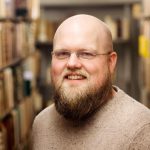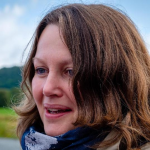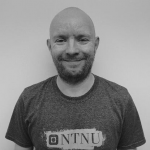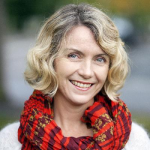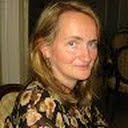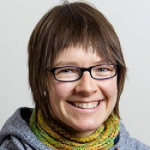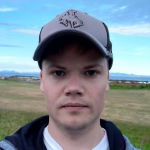 Costis Dallas, Associate Professor and Director of the Collaborative, Programs, Faculty of Information, University of Toronto and Digital Curation Unit, Athena RC.
Costis Dallas, Associate Professor and Director of the Collaborative, Programs, Faculty of Information, University of Toronto and Digital Curation Unit, Athena RC.
Associate Professor at the University of Toronto’s Faculty of Information, and since January 2016 Director of Collaborative Programs in the Faculty. For the last three years (July 2012 to June 2015) Director of its Museum Studies postgraduate program (MMSt), teaching courses in museum digital technologies and media, as well as museological theory and management. He is also a founding Research Fellow of the Digital Curation Unit, IMIS=”Athena” Research Centre (http://www.dcu.gr), working in the field of curation theory and cyberscholarhip requirements analysis and design. Highly experienced in in the field of cultural management and cultural heritage informatics.
His lecture will concentrate on: DiMPO, the Digital Methods and Practices Observatory Working Group of DARIAH, the Digital Research Infrastructure in the Arts and Humanities, aims to provide evidence-based , timely and useful information and insight on the scholarly practices, needs and attitudes of European humanities researchers working in the digital environment. For this purpose, it conducts literature review, questionnaire survey, qualitative and domain modeling research on the activities, methods and digital infrastructures developed and used for humanities research. More than a dozen DARIAH researchers from Austria, Croatia, Denmark, Finland, France, Germany, Greece, Ireland, Lithuania, Poland, Russia, Serbia, Slovenia, Spain, Switzerland, and the United Kingdom already participate in DiMPO activities. Its 2015 online questionnaire survey attracted 2,177 respondents from across Europe, and DiMPO seeks actively to expand its reach in the new launch of the survey planned for 2020. Its work on conceptual modeling of scholarly activity led to the development of the NeDIMAH Methods Ontology (NeMO), a formal specification for the conceptualization and documentation of scholarly methods and activities of researchers in the digital environment which integrates a consensus taxonomy of digital scholarly methods. DiMPO is currently working on a project to collect and document qualitative evidence on digitally-enabled humanities work across Europe through mutliple-case studies and qualitative intrerviewing. After a brief introduction to DARIAH, this presentation presents the objectives, activities and workplan of DiMPO, situating them methodologically in the context of the study of scholarly work and digital infrastructures requirements analysis.
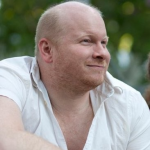 Derek Jakson, Harvard Business Publishing -. Derek received his MS in Information Science and Technology from Simmons College in Boston, Massachusetts, USA with a particular interest in digital archives and digital preservation. He has worked on many projects for archival institutions such as Yale University Manuscripts and Archives, The John F. Kennedy Presidential Library, Tufts Digital Collections and Archives, and Robert D. Farber University Archives & Special Collections at Brandeis. Later, with experience in metadata and digital formats, he moved to publishing. Currently, he is the Associate Director of Content Publishing for Higher Education at Harvard Business School Publishing, Harvard University, where he oversees publishing, metadata, document format conversion, and content accessibility, and where he develops automated conversion software.
Derek Jakson, Harvard Business Publishing -. Derek received his MS in Information Science and Technology from Simmons College in Boston, Massachusetts, USA with a particular interest in digital archives and digital preservation. He has worked on many projects for archival institutions such as Yale University Manuscripts and Archives, The John F. Kennedy Presidential Library, Tufts Digital Collections and Archives, and Robert D. Farber University Archives & Special Collections at Brandeis. Later, with experience in metadata and digital formats, he moved to publishing. Currently, he is the Associate Director of Content Publishing for Higher Education at Harvard Business School Publishing, Harvard University, where he oversees publishing, metadata, document format conversion, and content accessibility, and where he develops automated conversion software.
His lecture will concentrate on some of the tools and methods used by data scientists when working with large data. This exposure is intended to create some understanding of the roles and capabilities technology can bring to humanities research for the purpose of bridging the communication gap that often emerges between the worlds of technology and research. This exposure may also serve as a foundation to build upon in opening dialogues/communication between these two worlds on Digital Humanities research. We will take this communication a step further and look at how research can be communicated to audiences through data visualization with a deep consideration for accessibility and inclusivity.
 Andrew Perkis,Professor of media technology at the Department of Electronic System Design and Innovation , NTNU University Andrew Perkis is a Professor at the Department of Electronic System at the IE faculty, where he holds a Chair of Media Technology. His work moves across art and technology, with focus on the technical aspects of sensor-based digital storytelling and Immersive Media Technology Experiences (IMTE). In addition, he coordinates DARIAH at NTNU, and he is a Director of NTNU ARTEC, a transdisciplinary task force promoting new research, collaboration, and innovation across the fields of art, humanities, and technology.
Andrew Perkis,Professor of media technology at the Department of Electronic System Design and Innovation , NTNU University Andrew Perkis is a Professor at the Department of Electronic System at the IE faculty, where he holds a Chair of Media Technology. His work moves across art and technology, with focus on the technical aspects of sensor-based digital storytelling and Immersive Media Technology Experiences (IMTE). In addition, he coordinates DARIAH at NTNU, and he is a Director of NTNU ARTEC, a transdisciplinary task force promoting new research, collaboration, and innovation across the fields of art, humanities, and technology.
Ekaterina Prasolova-Førland is Professor at the Department of Education and Lifelong Learning at NTNU. She has been working with educational virtual worlds and immersive technologies since 2002, with nearly 100 publications in the field. She has been involved in developing educational virtual reality simulations for a wide range of stakeholders. Ekaterina has founded and is leading Innovative Immersive Technologies for Learning (IMTEL) research group and ‘Lifelong learning’ VR lab at Dragvoll, as well as ‘4 campuses 1 reality’ initiative with the goal of connecting the distributed campuses of NTNU with a network of VR labs. She is founder of Women in VR/AR Norway and frequently gives public speeches and interviews on immersive technologies for learning and training. She is currently leading the development of innovative VR/AR solutions for the Norwegian Labour and Welfare Administration to assist and empower young job seekers. She is also working on a number of projects on educational applications of immersive technologies in medicine, sports, therapy, career guidance, collaborative work, emergency management and other areas.
Keynote speakers: Day Two
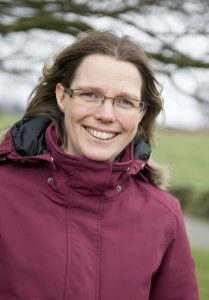
Ragnhild Hutchison,Historian, phd,CEO, Tidvis has initiated and produced the interactive extended reality project The port of Oslo in 1798 (https://oslohavn1798.no/). This is a digital recreation of the area Bjørvika as it may have been experienced in 1798. A digital world recreates the visual and audio experience. On location Scent boxes relate some of the smells. Augmented reality is also used to connect and fuse the digital and physical world. Ragnhild has also lead digital humanities projects like Historiske toll- og skipsanløpslister (https://tidvis.no/tollistene/ )
 Christian-Emil Ore, associate professor and head of Unit for Digital Documentation (EDD) at the University of Oslo and has worked with digital methods in the humanities for 25 years. Ore works along three main lines: Methods for cultural heritage documentation, lexicography & corpus and electronic text editions (medieval charters). An important issue in Ore’s work is how to to make the information in memory institutions electronically available: Standards like TEI for text encoding and common core ontologies like CIDOC-CRM for data interchange. Standards must not be straitjackets choking new research. Without them, however, we can never interlink our research data meaningfully, making it harder to argue for the usefulness of digital methods.
Christian-Emil Ore, associate professor and head of Unit for Digital Documentation (EDD) at the University of Oslo and has worked with digital methods in the humanities for 25 years. Ore works along three main lines: Methods for cultural heritage documentation, lexicography & corpus and electronic text editions (medieval charters). An important issue in Ore’s work is how to to make the information in memory institutions electronically available: Standards like TEI for text encoding and common core ontologies like CIDOC-CRM for data interchange. Standards must not be straitjackets choking new research. Without them, however, we can never interlink our research data meaningfully, making it harder to argue for the usefulness of digital methods.
Ore has been the principal investigator for several large-scale national database and digitalization projects for the university museums and cultural heritage collections in Norway and was one of the two founders of the Medieval Nordic Text Archive (menota.org). He has participated in and coordinated long-term language documentation projects in Southern Africa, served on scientific and advisory boards in US, Germany and Scandinavia, president of ICOM-CIDOC (2004-2010). Ore co-chairs TEI ontology SIG and is one of the international editors of the conceptual model CIDOC-CRM (cidoc-crm.org), and the current chair of the association Digital Humanities in the Nordic countries (DHN, http://dig-hum-nord.eu/).Ore is currently participating in the Norwegian infrastructure project Archaeological Digital Excavation Documentation (ADED) where he is responsible for the overarching conceptual model for the archeological data from excavation and in museums and archives.
Siv Gøril Brandtzæg, a postdoctoral fellow in the faculty-funded research project Enlightenent News: Periodical Publications, Newspapers and the Digital Archive at the Department of Language and Literature of the NTNU University. My current project is entitled ‘Advertising the Novel in Eighteenth-Century Newspapers: marketing a genre in Britain, Ireland and North-America,’ and it is concerned with investigating one of the most understudied types of text of the eighteenth century: newspaper advertisements of novels – which have recently become accessible and and machine-readable through major online databases. She is interested in various types of early modern popular literature and mediations of popular literature in newspapers and periodicals. At the moment I am cooperating with national and international scholars and librarians to establish a major project on the highly neglected Scandinavian broadside ballads (“Skillingstrykk”): Norwegian Broadside Ballads, 1550-1950: recovering a cultural heritage will be the first project to digitize and investigate a large corpus of broadside ballads in a Scandinavian as well as a broader, European context. Project webiste: http://skillingsviser.no
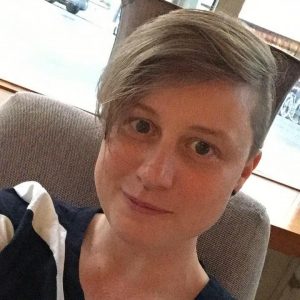 Annika Rockenberger is a Research Librarian at the National Library of Norway . She has Ph.D. in philosophy of philology from the University of Oslo. She has a background in literary studies, European history, and communication science and has been working at UiO since 2012. In 2013 she initiated the Oslo-based Digital Humanities network that lay the foundation of the Nordic Association for Digital Humanities (DHN) which she co-founded in 2015. She has been active as a DH ambassador in Norway and the Nordic Countries as well as in Europe. Since 2018 she is working as research librarian for digital humanities at the National Library of Norway.
Annika Rockenberger is a Research Librarian at the National Library of Norway . She has Ph.D. in philosophy of philology from the University of Oslo. She has a background in literary studies, European history, and communication science and has been working at UiO since 2012. In 2013 she initiated the Oslo-based Digital Humanities network that lay the foundation of the Nordic Association for Digital Humanities (DHN) which she co-founded in 2015. She has been active as a DH ambassador in Norway and the Nordic Countries as well as in Europe. Since 2018 she is working as research librarian for digital humanities at the National Library of Norway.
Anders Skare Malvik is an Associate Professor at the NTNU University, Department of Language and literature, is working with literature’s integration into history’s changing media cultures. How does contemporary literature respond to (comment on and intervene in) a digital media culture in which it takes part? How does the literary expression of late 19th century media culture respond to the social, political and psychological changes brought about by the marvels of railroad, telegraph and daily newspapers? He also believes that interdisciplinary engagement with such research questions can help provide better understanding of who we (think we) are and where (we think) we’re going at the onset of the digital era.
Research Group. TMB (The Medial Breakthrough in Norwegian Literature 1855-1905): https://www.ntnu.no/blogger/the-materialities-of-the-modern-breakthrough/
Chairs of the event
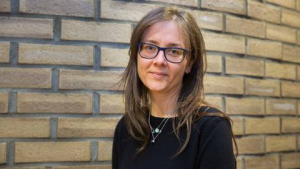 Hanna Musiol, Associate Professor of English, ISL at NTNU University & NTNU ARTEC/HF, is an Associate Professor of English at NTNU and a Deputy Director of NTNU ARTEC. Her research interests include transnational American literature, environmental and digital humanities, gender studies, and critical pedagogy, with emphasis on human rights, migration, and decolonization. She publishes frequently on literary and visual aesthetics, transmedia storytelling, and justice, and she has developed several curatorial, public humanities, and global classroom initiatives in Europe and the US. She will be chairing the main session of day one.
Hanna Musiol, Associate Professor of English, ISL at NTNU University & NTNU ARTEC/HF, is an Associate Professor of English at NTNU and a Deputy Director of NTNU ARTEC. Her research interests include transnational American literature, environmental and digital humanities, gender studies, and critical pedagogy, with emphasis on human rights, migration, and decolonization. She publishes frequently on literary and visual aesthetics, transmedia storytelling, and justice, and she has developed several curatorial, public humanities, and global classroom initiatives in Europe and the US. She will be chairing the main session of day one.
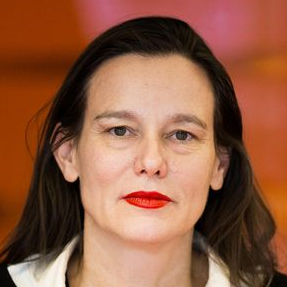
Letizia Jaccheri (Ph.D. from Politecnico di Torino, Italy) is Professor at the Department of Computer Science & NTNU ARTEC. Jaccheri’s research is on: software engineering; entertainment computing; computational creativity; ICT-enabled social innovation.is the Norwegian representative and Vice President of IFIP TC14 on Entertainment Computing since 2012 . She has published more than 100 papers in International conferences and journals. She has been teaching courses in software engineering at various levels since 1994. She has supervised PhD students, Post doctoral students and acted as opponent for national and international defences. From 2015 to April 2018 she acted as independent director of Reply S.p.A. She will be chairing the main session of day two.

Alexandra Angeletaki, (magister-grad from University of Oslo, Senior Researcher librarian at NTNU University library, working with digital heritage and educational design, and she is the project manager of Mubil and ARK4 at the NTNU University library. She started off as a field archaeologist in Greece, then a NTNU lecturer at the NTNU museum and has taught courses of Classical Archaeology, European Archaeology, Archaeological Theory and Cultural history. Since 2006 she has been working at the NTNU University library with different projects in order to promote the historical archives of the Gunnerus library and its digital resources.She has been involved in interdisciplinary DH projects since 2012 with the University of Santa Anna in Pisa Italy, Athens Research Unit in Athens, Greece and Europeana, she is also a member of Dariah EU. She teaches information literacy for students of archaeology and Museum studies students and researchers.She is the seminar chair.
https://docs.google.com/presentation/d/164gh3qSaFFMaLNyY9j9nE_Y3jeO4bG7CqyvIaD-RbmM/edit#slide=id.p7
Organizing Comitee NTNU UB: Evelyn Irene Thor Research Librarian,Peggy Furtig Research Librarian,Per Olav Broback Rasch, Research Librarian,Ove Wolden Senior Engineer,Alexander Lyngsnes Research Librarian,Ingunn Østgaard, Senior Consultant,Fredrik Schille Higher Executive Officer, Inger Langø, Head Librarian
Head of the Section: Stein Olle Johansen
